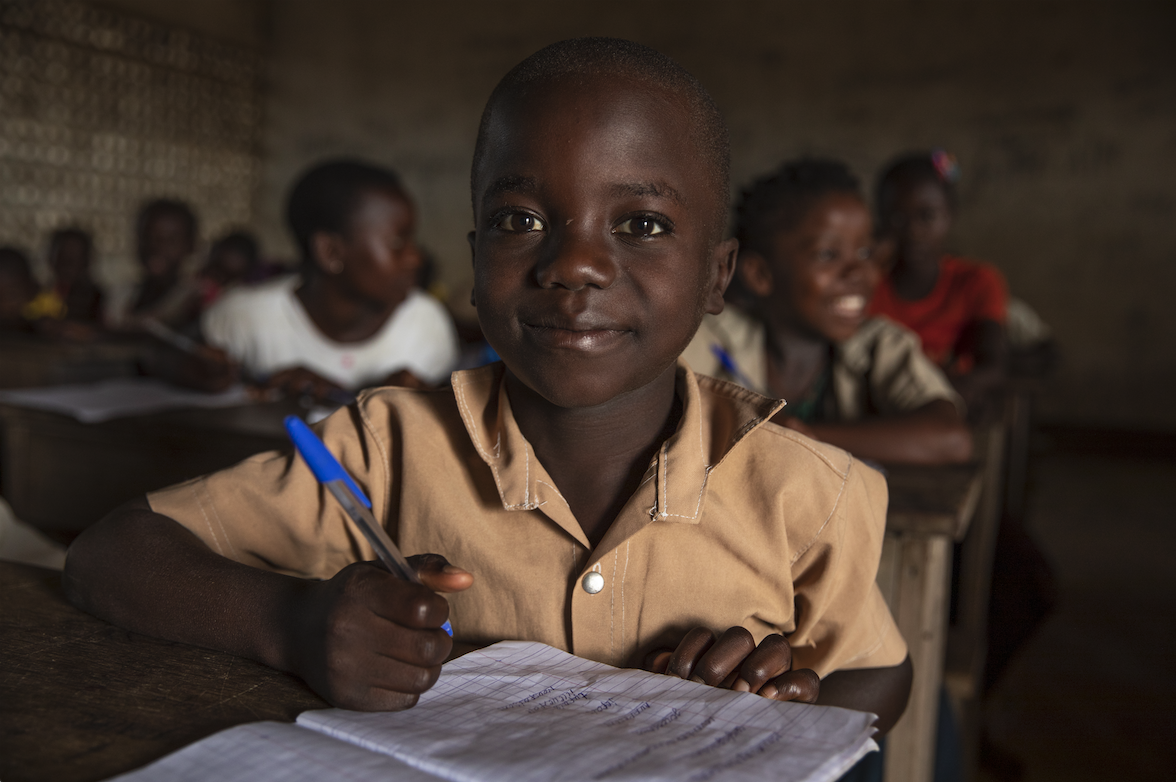
The Steering Committee of the ‘Seeds for Tomorrow’ project met on 23 January to share the results achieved in the project’s first year and present the work plan for 2025. They also discussed the continuity of collaboration between the governments of Brazil and the Republic of Congo in the field of school feeding linked to the local agriculture.
Various authorities and government representatives from the Republic of Congo and Brazil attended the event. Among the participants from the government of the Republic of Congo were the representative of the Ministry of Agriculture, Livestock and Fisheries (MAEP) Mr, Paul Valentin Ngobo. On the Brazilian side, the meeting included representatives from the National Fund for the Development of Education (FNDE), Ministry of Education; the Ministry of Agrarian Development and Family Agriculture (MDA); the Brazilian Cooperation Agency (ABC), Ministry of Foreign Affairs; and the Brazilian Embassy in the Republic of Congo.
Representatives from different WFP offices (Rome, Brazil, Republic of Congo and Johannesburg) and IBSA Forum partner governments, including the Embassies of India and South Africa in the Republic of Congo, also participated.
Opening the event, the Minister of Agriculture, Livestock and Fisheries of the Republic of Congo, Mr. Paul Valentin Ngobo, said that the project contributes to further strengthening the government’s commitment to improving the living conditions of agricultural producers and encouraging sustainable agriculture.
‘This initiative is also in line with responsible principles to create an environment in which we can improve our agriculture in the face of climate change, and favour local production for school meals. I thank the actors involved for recognising that international cooperation and solidarity make a significant contribution to going further and further,’ said the Minister.
Mrs. Pitchou Prudence Banga-Mboko, representative of the Ministry of Pre-school, Primary and Secondary Education and Literacy of the Republic of Congo, emphasised that the project strengthens capacities to guarantee food security through access to markets for local producers and the supply of products to school canteens. ‘School canteens sustain an economy by favouring local production. This project brings a model of sustainable practices that transforms realities,’ she said.
During the opening, Gon Myers, WFP Director in the Republic of Congo, stressed that ‘Since the launch of this project in 2023, we have made significant progress. We have laid solid foundations for a new dynamic that aims to link family farming to local markets, support small producers, especially women, and promote sustainable, quality school meals. These results are the fruit of close collaboration between all the actors present here today.’
The first panel presented the activities of the Seeds for Tomorrow Project carried out during 2024. One of the highlights was the visit of the Congolese government delegation to Rio de Janeiro in March. On that occasion, the delegation learned about Brazilian initiatives related to school feeding, agroecology and the integration of family farmers into the National School Feeding Programme.
Subsequently, among the project’s preliminary activities, 10 schools and 10 agricultural co-operatives in the departments of Pool, Bouenza and Plateaux were selected for the pilot project.
In the second half of the year, workshops were held to exchange experiences on public policies at local and national level. The actions focused on agricultural production, the management of school canteens, the distribution of agricultural equipment and the supply of inputs to the participating schools.
‘This joint partnership, built on a shared vision of sustainable development, is creating a legacy that transcends this project, promoting concrete progress towards achieving SDG 2 – Zero Hunger, and SDG 17 – Partnerships for the Implementation of the Sustainable Development Goals, both aligned with the core mandate of the World Food Programme,’ said Daniel Balaban, Director of the WFP Centre of Excellence against Hunger in Brazil.

For 2025, the project aims to continue training public policy makers and rural technical assistance in the planning, implementation and monitoring of programmes that promote family farmers’ access to local markets.
It also plans to deliver manuals and booklets to beneficiaries, as well as equipment for school canteens, and to monitor and disseminate the results and lessons learnt throughout the project.

About the project
The project ‘Strengthening access to local markets for small producers in the Republic of Congo through South-South Cooperation’ or ‘Seeds for Tomorrow’ is a partnership between the IBSA Fund, the governments of Congo and Brazil, and the World Food Programme (WFP).
The initiative aims to improve the food security and nutrition of small producers, especially women and children, by promoting family farming and integrating local production into school feeding programmes.
With a focus on institutional and technical strengthening, the project will train 65 policymakers, 10 agricultural cooperatives and 10 schools in the departments of Bouenza, Plateaux and Pool, providing training, equipment and technical assistance based on Brazilian and partner expertise, with operational support from the WFP.




